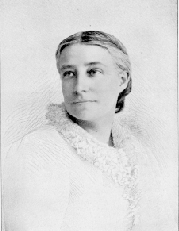A Quote by bell hooks
I grew up in the midst of poverty but every black kid that I knew could read and write. We have to talk about the fact that we cannot educate for critical consciousness if we have a group of people who cannot access Fanon, Cabral, or Audre Lorde because they can’t read or write. How did Malcolm X radicalize his consciousness? He did it through books. If you deprive working-class and poor black people of access to reading and writing, you are making them that much farther removed from being a class that can engage in revolutionary resistance.
Quote Topics
About
Access
Because
Being
Black
Black People
Books
Cannot
Class
Consciousness
Could
Critical
Deprive
Did
Educate
Engage
Every
Fact
Farther
Grew
Grew Up
Group
His
How
Kid
Knew
Making
Malcolm
Midst
Much
People
Poor
Poverty
Read
Reading
Reading And Writing
Resistance
Revolutionary
Talk
Them
Through
Up
We Cannot
Working
Working-Class
Write
Writing
Related Quotes
But for poor black people and working-class black people, it is a much more difficult way to go. The over-incarceration of black people is just intolerable. When you look at the disparity in terms of education and access to fair schooling, it is horrible. If this would happen to white people in this country, it would not be tolerated.
There is a forgotten black middle class in America - a group which is huge but underrepresented in the media and in art. It's difficult to talk about these things, because it forces one to talk in generalities, but that's my view. I do think the idea of a blanket class for black people is unfortunately still present.
I read everything and anything related to being queer. I found solace in reading authors like Audre Lorde and bell hooks, who would become my activist staples - their words helped me grow up and taught me how to be bold and courageous. By studying them, I came to understand that being young and queer and black would not be easy.
Blogging has mostly been an opportunity to react more immediately to experiences to try out ideas that I may end up using in the print media or in some other place. When I write books, it's a way for me to bring readers into the experience of writing the book, all through the process of writing the books that I write. I talk about what I'm up to in the blog. I let people know what I am doing. To me, it's just part of putting my professional life up in a way that people who are interested in it can access; and learning things from them as well.
There is still an assumption among many people that to be black is to be lower class. In the last fifteen to twenty years, perhaps even further back than that, there's also been an explosion of a very wealthy black class in the United States, but those people are often treated as special cases: they're athletes, entertainers. Jay-Z. Basketball players. The country metabolizes the fact these rich black people exist, but it seems only to reinforce the idea that every other black person is limping along in poverty.
For me writing is a long, hard, painful process, but it is addictive, a pleasure that I seek out actively. My advice to young writers is this: Read a lot. Read to find out what past writers have done. Then write about what you know. Write about your school, your class, about your teachers, your family. That's what I did. Each writer must find his or her own kind of voice. Finally, you have to keep on writing.
In terms of the economics, yes obviously the rise of e-books and how people choose to read books has a big effect on the economics of the game. But whether people are buying them on paper or downloading them there's still some poor wretch in a room who is trying to write a poem, write a story, write a novel. And so my job doesn't change. It's just how people receive it and economic conditions on the ground change, but that doesn't affect what I write.
When people talk to me about the digital divide, I think of it not so much about who has access to what technology as about who knows how to create and express themselves in the new language of the screen. If students aren't taught the language of sound and images, shouldn't they be considered as illiterate as if they left college without being able to read and write?
When I was in high school, I was in a special math class. I was infatuated with physics, particularly nuclear physics, Einstein, and the Big Bang. I read a lot about black holes. And partly because I'm so lazy I thought you could do all this just by looking at the sky and thinking up universes. It didn't seem like hard work when I was a kid, so I enrolled in this class.
In Britain, we need to start presenting the option of being a writer in front of black women. We need to present the idea of being a writer into poorer communities because the majority of black people in this country are working class. We need to let working-class people know that their voices are important.


































